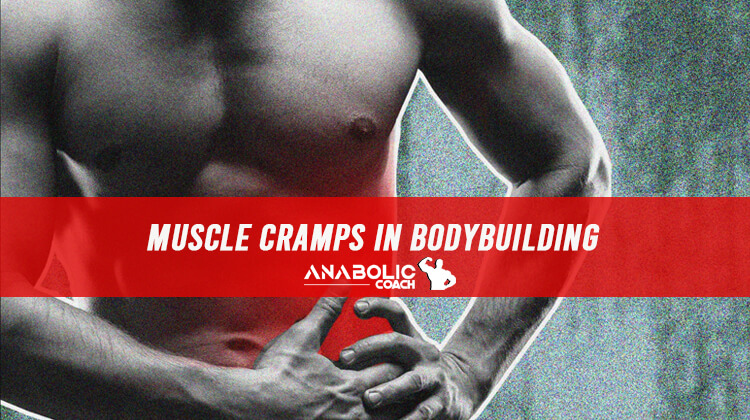It is not unusual for bodybuilders of all levels to experience some form of muscle cramp before, during, and after a strength training or high-interval intensity training session.
In this post, we answer the question of what are muscle cramps?
We also highlight some common causes of muscle cramp in bodybuilding while pointing out how long they normally last, how you can avoid them on your own, and possible treatment for muscle cramps.
What are Muscle Cramps?
When you hear bodybuilders complain of muscle cramps, it often means that they are experiencing a situation characterized by the painful, involuntary spasm of their skeletal muscles.
Muscle cramps are known to affect just about any minor or major muscle group. However, most bodybuilders will attest to the fact that their foot and calf muscles are more susceptible to spontaneous muscle cramping than any other part of the body.
While muscle cramps on their own are more often than not an inconvenient, but harmless condition, they may also be indicative of more complicated health issues. Cramping of the muscles may be associated with atherosclerosis or the narrowing out the arteries.
Nevertheless, most muscle cramps experienced by bodybuilders are caused by other reasons as explained shortly, but these cramps tend to go on their own accord after a while and as suddenly as they occur.
It is interesting to note that several risk factors have been known to trigger muscle cramping, and some of these factors include inflexible, tight skeletal muscles, and an imbalance in your electrolyte and/or mineral levels.
If you ever experience muscle cramps, you may notice one or both of these symptoms:
- spontaneous twitching of the muscles, and
- painful involuntary muscle spasms.
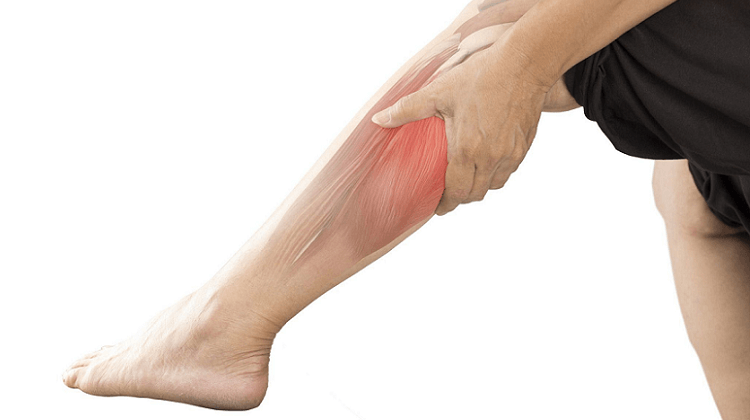
Causes of Muscle Cramps in Bodybuilding
It is worth noting that there is no known specific cause of skeletal muscle cramps. However, the risk factors that could greatly trigger a muscle cramping episode either frequently or occasionally are known and some of these risk factors are:
#1. Inflexible and tight muscles:
Whenever your muscles tighten up and appear to be inflexible due to insufficient physical activity or a lack of an adequate exercise routine, you may be more prone to experiencing muscle cramps.
Your muscles may be inflexible, stiff, and tight when you are in poor physical condition due to failing health or a sedentary lifestyle characterized by a lack of exercise leading to a poor muscle tone and physical conditioning.
#2. Poor diet and Dehydration:
Muscle cramps have been traced to poor nutrition and diet which can lead to a significant drop in your body’s daily nutritional requirements and therefore trigger spontaneous cramping.
Dehydration caused by poor hydration habits, excessive perspiration or gastroenteritis tend to starve your muscles of fluids, electrolytes, and essential minerals needed for the proper functioning, and growth of your skeletal muscle tissues.
#3. Overexertion of your muscle:
You will stand the risk of experiencing muscle cramps if you subject a particular muscle group to considerable physical exertion.
Many bodybuilders are known to be struck with muscle cramps when they engage in high-interval intensity training (HIIT).
An overexertion of cold skeletal muscles is also a high risk factor of muscle cramps. This is why you need to engage in extensive general warm-ups and stretching exercises before you step-up your workout regimen with a main workout consisting of HIIT or weight training.
#4. Muscle Fatigue and Injury:
There is evidence to believe that muscle fatigue caused by high levels of lactic acid in muscle tissue can lead to sudden muscle cramping.
Lactic acid buildup is commonly experienced by bodybuilders, especially when they lift heavy during strength training.
Involuntary muscle spasms and twitching which are symptoms of muscle cramps are also known to occur whenever bodybuilders are struck with muscle injuries.
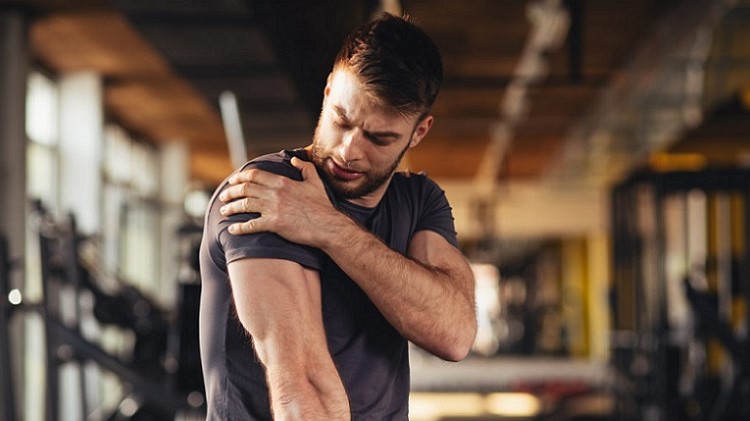
#5. Ischaemia or a drop in Blood Supply:
Your red blood cell (RBC) count is important in determining the amount of oxygenated and nutrient-rich blood that gets to your skeletal muscle tissues.
Whenever your RBC levels drop, your skeletal muscles will be starved of both oxygen and vital nutrients, this can lead to your muscles cramping in reaction to the dearth in nutrient and oxygen-rich blood.
In addition to these risk factors, quite a few medical conditions are known to increase your risk of experiencing muscle cramps. Some of these medical conditions include:
Atherosclerosis
Atherosclerosis is a medical condition in which the arteries narrow out as a result of fatty plaque formation on the walls of the affected arteries.
This condition can lead to ischaemia where the supply of blood to your muscle tissues drops and the consequence of which is the spontaneous emergence of muscle cramps.
Sciatica
If you have sciatica, a condition where there is pressure on your sciatic nerve causing seething pain that surges through one side of your lower back, buttock, and leg, you could experience muscle cramps as a consequence and symptom of the irritated sciatic nerve.
Prescribed Medication
There are prescribed medications that act as diuretics and cause you to urinate frequently thereby losing both fluids and electrolytes.
This frequent loss of both fluids and electrolytes can significantly drop your mineral levels and this imbalance is known to be a trigger for muscle cramps.
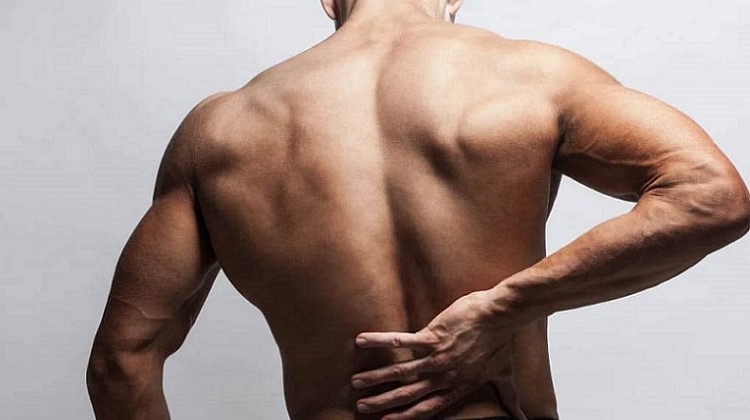
How Long Do Muscle Cramps Last?
A typical muscle cramp starts off with the sudden contract of your skeletal muscles causing you pain in and around the site of the cramping.
The contract or shortening of your skeletal muscle is characterized by involuntary, sporadic spasms of the muscle tissues that can last anywhere from less than a minute to close to a quarter of an hour.
How to Avoid Muscle Cramps?
The goodness for bodybuilders is that muscle cramps can actually be prevented with some comparable success. If you want to avoid muscle cramps, you can’t go wrong if you follow these tips:
#1. Stay Fit:
When you increase your physical fitness, you will reduce your risk of encountering muscle cramps caused by inflexible and/or tight muscles.
#2. Warm-ups Help:
Before you engage in any HIIT or weight training, you first need to carry out general warm-ups and active stretching exercises to warm your muscles up before they are subjected to intense workouts.
Cold muscles are more susceptible to muscle cramps, so a warm-up and stretching exercise will help to get your muscles warm and combat the problem of muscle cramps.
#3. Stay Hydrated:
You need to stay hydrated by drinking lots of clean drinking water before, during, and even after your regular scheduled workout routine.
By staying hydrated, you will ensure that your muscle tissues get the nutrients, essential minerals, and electrolyte they need to function effectively while at the same time avoiding sudden muscle cramps.
#4. Maintain a Good Diet:
A highly nutritious diet will go a long way in protecting you from frequent muscle cramps. By providing your entire body system with your daily nutrients requirement, your muscle tissues will be well be provided with the right amount of nourishment needed.
#5. Massage:
A massage after an intensive workout can help the blood circulating in your muscle tissues and relieve muscle tension all at once.
To ensure that you get the right massage, see a professional, you can consult with a physiotherapist near you.
If you experience severe muscle cramps, you can ease the pain quickly with the application of an ice pack to help relax the troubled muscle.
There are also medications that you can take to regulate muscle cramps, but it is advisable that you consult with your physician for the right type of prescription medication to use.
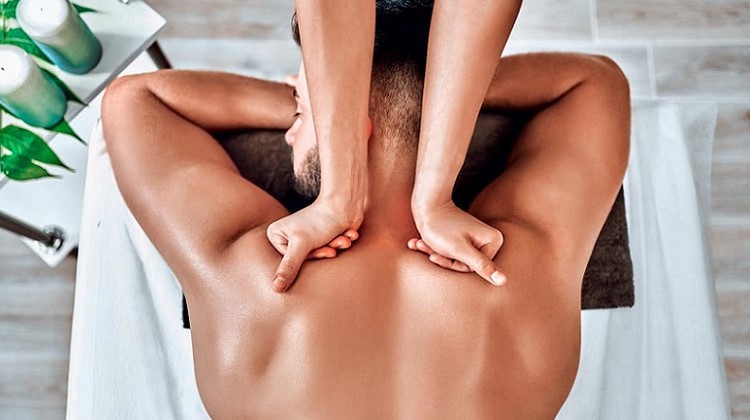
Final Thoughts
Muscle cramps can be a real cause for concern for most bodybuilders. However, it is always best not to think too much about having cramps when you workout. You should stay hydrated at all times, eat clean, stay fit, and warm-up before every HIIT session.
It is also important to remember that muscle cramps may be a symptom of a more severe undiagnosed health issue, so make sure you have a thorough medical checkup if your muscle cramps occur frequently, and last for an extended period of time.
For more information on muscle cramps, you can chat with our in-house IFBB PRO for free right here for advice on treatment for muscle cramps amongst other useful information.

